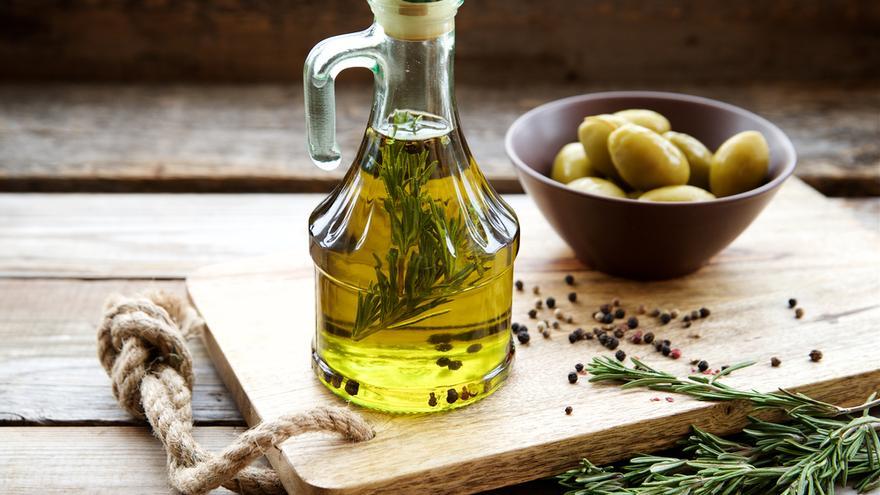Consuming more than 7 grams (a half tablespoon) of olive oil a day is associated with a lower risk of mortality from cardiovascular diseases, for cancer, for neurodegenerative diseases and respiratory diseases, according to a study published in the ‘Journal of the American College of Cardiology’.
The study has also revealed that substituting about 10 grams of margarine, butter, mayonnaise and milk fat per day for the equivalent amount of olive oil is also associated with a lower risk of mortality.
“Our results support current dietary recommendations to increase your intake of olive oil and other unsaturated vegetable oils “, says Dr. Marta Guasch-Ferré, principal investigator of the Nutrition Department of the Harvard TH Chan School of Public Health, in the United States and principal author of the study.
For this reason, he emphasizes that “doctors should advise patients to substitute certain fats, such as margarine and butter, for olive oil to improve their health. Our study helps to make more specific recommendations that will be easier for patients to understand. patients and, hopefully, to implement in their diets. ”
Using participants from the Nurses’ Health Study and the Health Professionals Follow-up Study, the researchers analyzed 60,582 women and 31,801 men who were free from cardiovascular disease and cancer on the study’s start date in 1990.
28 years of follow-up
During the 28 years of follow-up, the diet was evaluated using a questionnaire every four years. The questionnaire asked how often, on average, they consumed specific foods, types of fats and oils, as well as what brand or type of oils they used for cooking and added to the table in the previous year.
The consumption of olive oil was calculated from the sum of three items of the questionnaire: olive oil used to dress salads, olive oil added to food or bread, and olive oil used for baking and frying at home. One tablespoon equaled 13.5 grams of olive oil.
The consumption of other vegetable oils was calculated from the oil brand and the type of fat that the participants reported using for cooking at home. Margarine and butter consumption was based on the reported frequency of stick, tub or soft margarine consumption, and the amount of margarine or butter added when baking and frying at home. The consumption of dairy products and other fats and nutrients was also calculated.
Researchers found that consuming olive oil increased from 1.6 grams / day in 1990 to about 4 grams / day in 2010, while margarine consumption decreased from about 12 grams / day in 1990 to about 4 grams / day in 2010. Intake of other fats remained stable.
More physically active
Over 28 years, there were 36,856 deaths, 22,768 in the Nurses’ Health Study and 14,076 in the Health Professionals Follow-up Study. Participants with a higher consumption of olive oil tended to be more physically active, had southern European or Mediterranean descent, were less likely to smoke and had a higher consumption of fruits and vegetables compared to those with a lower consumption of oil made of olives.
The mean total olive oil consumption in the highest category was about 9 grams / day at baseline and included 5% of the study participants.
When the researchers compared those who rarely or never consumed olive oil, those in the category with the highest consumption had a 19% lower risk of cardiovascular mortality, 17% less cancer mortality, 29% less neurodegenerative mortality and 18% less respiratory mortality.
The study also found that substituting 10 grams / day of other fats, such as margarine, butter, mayonnaise and milk fats, for olive oil was associated with an 8 to 34% lower risk of overall mortality and for specific causes. They found no significant associations when substituting olive oil for other vegetable oils.
“It is possible that a higher consumption of olive oil is a marker of an overall healthier diet and a higher socioeconomic status. However, even after adjusting for these and other factors for socioeconomic status, our results remained largely the same, “says Guasch-Ferré.
www.informacion.es
Eddie is an Australian news reporter with over 9 years in the industry and has published on Forbes and tech crunch.
